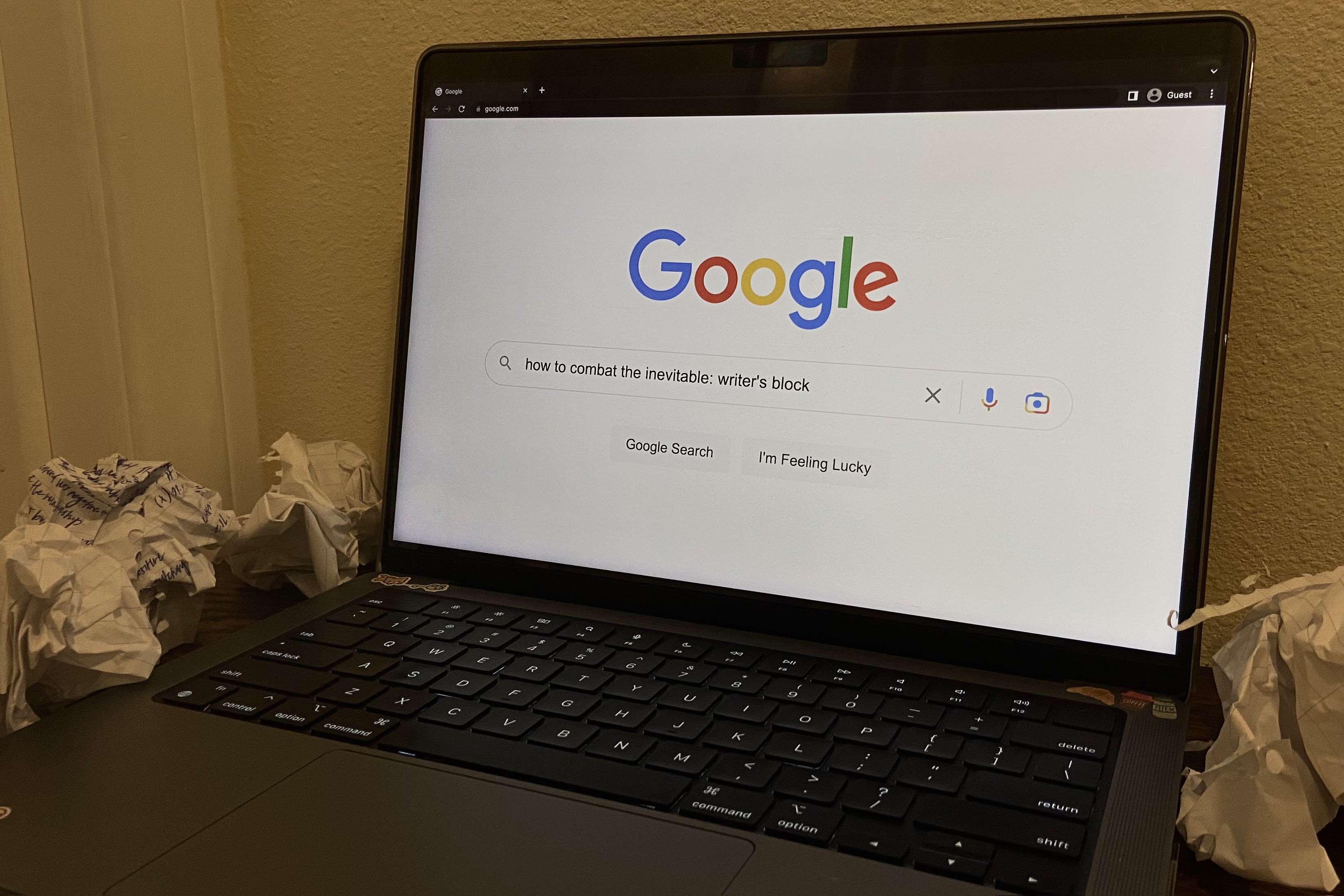
By Molly Chang
It’s 9:36 p.m. on a Sunday night and you just got back from a long day volunteering at the local soup kitchen. The night before, you binged a few too many “Breaking Bad” episodes without even realizing it was 3:27 a.m. Setting alarms for the following day at 8 a.m. and 8:30 a.m. ended up being pointless, as you wake up groggy with dark eye bags at 4:53 p.m.—sleeping through what could have been a productive day.
And after scrolling through too many TikTok videos and having only three volunteer hours to add to your college applications, you simply stare ahead at the blank Google Doc in front of you. Tapping your fingers and staring at the wall for what feels like hours, you come to the awful realization that you are suffering from a student’s worst enemy: writer’s block.
We’ve all been there.
From a simple email to your boss, to the dreaded five-paragraph essay on the AP Language and Composition exam, writing doesn’t always flow onto paper as naturally as we want it to. And while we can all agree that writer’s block is one of the most frustrating feelings to deal with, it is undoubtedly inevitable.
Whether it be to tackle that five-page paper due at the end of your English class, or to simply improve your college essays, here are a few tips to fight off the virus that we, as high school students, are all incredibly familiar with: writer’s block.
Word dump on paper
Because perfectionism is one of the most common reasons students experience difficulty writing, the only way to start off and form a rough draft is to simply spill. “Dumping” whatever ideas and thoughts come to your mind directly on a Google Doc ensures that you have enough information to cut out later on, while still having enough to work with.
Keeping in mind that your work doesn’t have to be perfect or great, takes off the stress that so many of us put upon ourselves. In addition, being aware that the first draft of a piece of writing isn’t bound to be flawless defeats that perfectionist mindset of yours, as there isn’t a pressure to write like Shakespeare first try.
Clear your mental and physical space
While this may be cliche to say, it’s true. Clearing your mind and environment of distractions such as a phone or other tabs ensures that you don’t get off track from what you’re trying to accomplish on paper. With a clear mind, open table space and possibly some lo-fi playing in the background, it’ll be easier to crank in the writing.
After all, being placed in stressful and cluttered spaces won’t promote productivity. Instead, a distracting workplace could cause yet another binge of whatever Netflix show you’re halfway through. And in turn, as the procrastination continues, the stress has nowhere to go but up.
Do something else
Although “doing something else” might seem the complete opposite of what the definition of productivity is, taking time away from a difficult writing task might be the best solution there is to recontinue the flow of words.
Whether that be going for a shower, or ordering a matcha latte, taking a break gives time to ponder and daydream about the writing and what it’s missing. And once you feel ready and recharged, return to your pen and paper (or your computer and keyboard) and write away.
Put on music
From lofi to cafe jazz music, soothing tunes can help boost concentration and productivity when it comes to writing. Simply open Spotify (or whichever streaming platform you use), find or compile a “writing music” playlist, press the “play” button and leave it on in the background.
Take a deep breath, get some water and get to writing. You got this!





